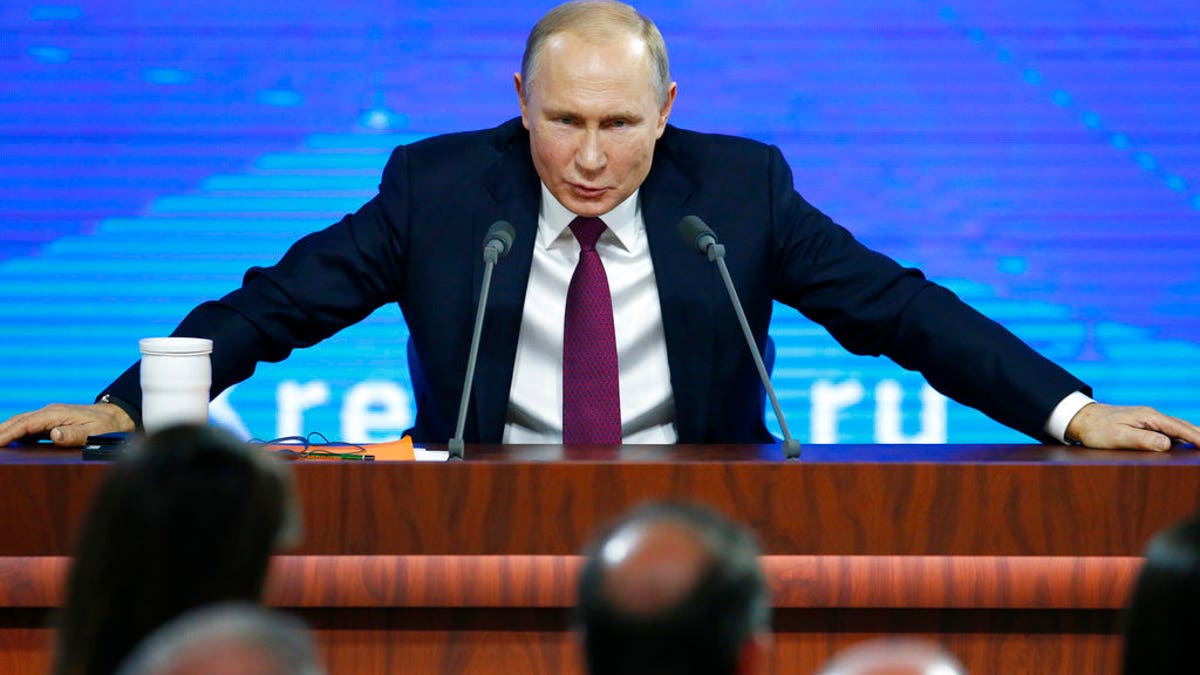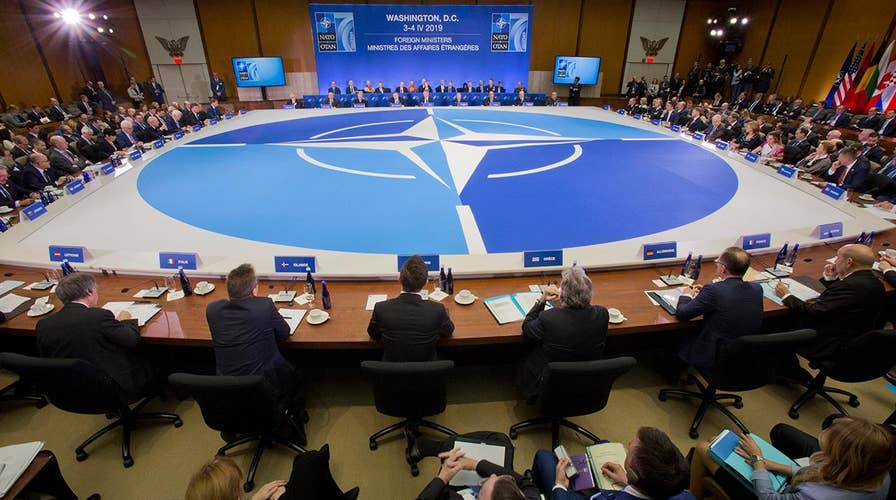As NATO celebrates its 70th anniversary, is it an alliance worth keeping?
President Trump has accused some NATO countries of not paying their fair share.
A document accidentally published by a NATO-affiliated body has hit headlines across Europe this week, seeming to affirm a longstanding open secret that is technically still classified: precisely where in Europe the United States stores its nuclear weapons.
According to the document -- entitled “A new era for nuclear deterrence? Modernization, arms control and allied,” which was published in April but has since been deleted -- the U.S stores its caches totaling more than 150 nuclear weapons in Belgium, Italy, Germany, the Netherlands, and Turkey.
“These bombs are stored at six U.S. and European bases – Kleine Brogel in Belgium, Buchel in Germany, Aviano and Ghedi-Torre in Italy, Volkel in The Netherlands, and Incirlik in Turkey,” the report, authored by Canadian lawmaker Joseph Day, noted.
CONSTRAINED BY IRAN SANCTIONS, INDIA SEEKS TO BOOST THE US OIL ECONOMY
As a Washington Post analysis pointed out, the document does not attribute the information to any source. The report was re-published last week without references to the nuclear arsenal locations.
“The reasons for U.S. nuclear weapons in Europe are complex and have to do with the U.S. guaranteeing comfort to NATO’s security so these nations could concentrate their wealth on other matters. These reasons arguably remain useful today,” says risk and arms control analyst Dennis Santiago. “However, this potentially reignites a parallel protest yearning by Europeans who fear these nuclear weapons on their soil. It is an unfortunate mention in the draft because it does cause policy and diplomacy stress to an already tenuous NATO hand of cards.”
The Day report was written for the NATO Parliamentary Assembly, which seeks to “provide a unique specialized forum for members of parliament from across the Atlantic Alliance to discuss and influence decisions on Alliance security.” The Assembly is institutionally separate from NATO, but “serves as an essential link between NATO and the parliaments of the NATO nations. It provides greater transparency of NATO policies, and fosters a better understanding of the Alliance’s objectives and missions among legislators and citizens of the Alliance.”
TURKEY PREPARES TO RECEIVE RUSSIAN MISSILE SYSTEM, AS QUESTIONS SWIRL OVER POTENTIAL US PUNISHMENT
The Assembly did not immediately respond to a request for comment. A NATO official told Fox News that they “do not comment on the details of NATO’s nuclear posture.”
While locations of such weapons are traditionally not talked about between the U.S. and its partners, defense experts do not believe such specific revelations will have any fallout or compromise the program.
“I don’t think it has any impact in practice, it could hardly be described as a secret at this point. Populations have been sensitized to this for so long,” said Luke Coffey, a foreign policy and military expert at The Heritage Foundation. “If anything, it is an important reminder of NATO’s most important role as a nuclear deterrent. First and foremost, NATO was founded as nuclear deterrence and the basing of these weapons in Europe is an important part of the burden-sharing.”

Russian President Vladimir speaks during his annual news conference in Moscow, Russia, Thursday, Dec. 20, 2018. Speaking at news conference Thursday, Putin pointed at the U.S. intention to withdraw from the 1987 Intermediate-Range Nuclear Forces (INF) Treaty. He said that if the U.S. puts intermediate-range missiles in Europe, Russia will be forced to take countermeasures. (AP Photo/Alexander Zemlianichenko)
Arms Control Association Executive Director Daryl Kimball agreed, telling Fox News that “locations of the 180 U.S. nuclear-armed gravity bombs at bases in five European NATO countries has been widely known for quite some time.”
But John Wood, a military analyst and author of “Russia, the Asymmetric Threat to the United States,” suggested it could open a very different Pandora’s Box of questions and debates.
“From a Russian perspective, the nuke report provides a different basis from the official version for why the US withdrew from the INF treaty, and justification on its part for the deployment of the Iskander etc. to counter the threat,” he added, referring to Russia’s hypersonic missile barrage capabilities which could potentially be pointed at NATO partners in Europe. “For many European leaders, this truth will prove to be at a minimum very embarrassing, underscoring the continued reliance of Europe on the US nuclear umbrella to deter the growing Russian conventional military threat.”
The U.S. Department of Defense told Fox News on Tuesday: “It is DOD policy to neither confirm nor deny the presence or absence of nuclear weapons at any general or specific location.”
Fox News' Lucas Tomlinson contributed to this report.

